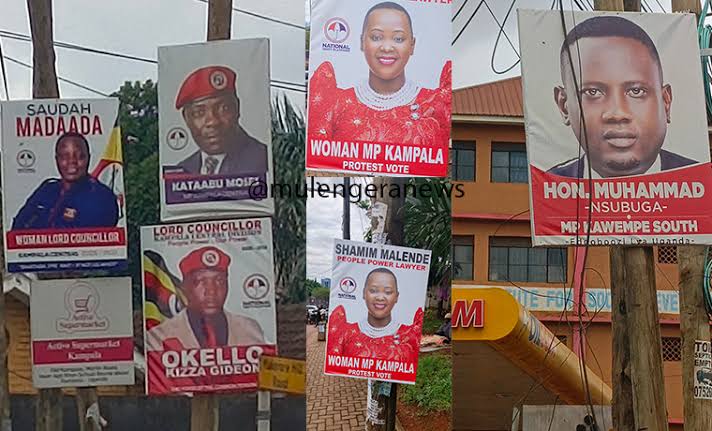
The Kampala Capital City Authority (KCCA) has released a set new guidelines to regulate the display and use of election campaign posters in the city ahead of next years General Elections .
The Authority says the measures are aimed at preserving public order, protecting city infrastructure, and ensuring that campaign activities do not compromise Kampala’s aesthetics or public safety.
According to the new rules, all campaign posters and related advertising tools will only be permitted after securing authorization from KCCA.
The regulations ban campaign materials from hospitals, schools, churches, and utility poles. Posters will also not be allowed on walls or trees, while illuminated signs will only be permitted on existing licensed billboards to prevent clutter.
KCCA explained that the rules are backed by several existing laws, including the Physical Planning Act, the National Environment Act, and the Parliamentary Elections Act. Campaign posters, according to the guidelines, must not exceed 0.9m by 0.6m. Billboards or other ground structures will require both spatial and structural approval before they can be erected.
Placement of campaign tools on road reserves, traffic light poles, junctions, and roundabouts has been outlawed in order to prevent obstruction of visibility and protect road users.
The Authority also criminalized the removal or defacing of rival candidates’ posters, warning that offenders will be prosecuted under the Parliamentary Elections Act. Any campaign materials erected without the necessary permits will be removed at the owner’s expense.
Sound campaigns have also been regulated. KCCA Executive Director Hajjat Sharifah Buzeki said political campaign sound systems will only be allowed between 8:00 am and 5:00 pm and must not exceed 80 decibels. Motorized advertisements will only be accepted if they comply with outdoor advertising laws.
“To curb littering, the Authority has discouraged the use of fliers and loose-leaf materials. Candidates are encouraged to use designated notice boards, which will also make it easier to remove campaign tools after elections. Permit holders will be responsible for ensuring that their campaign materials are cleared at the end of the election period,” she said.
Hajjat Buzeki emphasized that KCCA’s mandate includes maintaining city aesthetics, preventing damage to public property, and upholding public decency. “These guidelines are intended to ensure order, safety, and respect for the city’s image as we head into the election season,” she added.
However, Lord Mayor Erias Lukwago, who is also a candidate in Kampala, questioned the legality of the regulations. He argued that the guidelines were presented in draft form and have not undergone the necessary legislative process required to make them binding.
“For KCCA to issue an instrument of this nature, it has to be in the form of an ordinance or a compendium of electoral laws. That requires drafting a bill, debating it in the City Executive Committee chaired by the Lord Mayor, passing it through council, and then seeking verification from the Attorney General before gazettement. None of these steps have been taken,” Lukwago said.
KCCA warned that campaign advertisements of any nature will be treated as developments that require permission under the Physical Planning Act and the Building Control Act. Posters or campaign tools put up without this approval will be considered illegal developments and handled under Section 35(2) and (4) of the Act.
Materials placed without permission will also be treated as litter, falling under Section 97 of the National Environment Act. In addition, any person who erects campaign tools that obstruct public peace, cause excessive noise, or disturb public order within KCCA’s jurisdiction will be deemed to be in violation of the Local Government (Maintenance of Law and Order) Ordinance, 2006.
Defacing, destroying, or maliciously removing the campaign posters of rival candidates has also been criminalized under Section 101 of the Parliamentary Elections Act. Those found guilty risk fines or imprisonment as provided for by law.